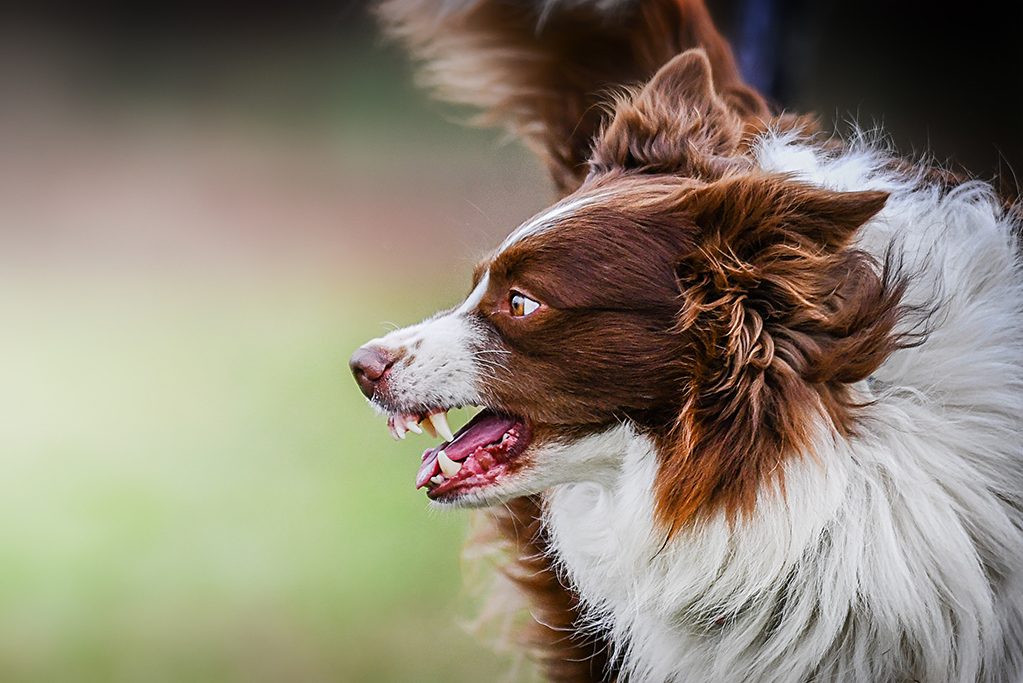Border Collies are known for their intelligence and energy. Yet, they can have behavioral issues.
These issues often arise from their high energy and strong herding instincts. Border Collies need a lot of mental and physical exercise. Without this, they might become restless or destructive. Their intelligence can lead to boredom if they aren’t challenged.
This can result in unwanted behaviors. They may also develop herding behaviors, such as nipping or chasing. Understanding these issues helps in managing them effectively. Recognizing the signs early can prevent problems from escalating. Proper training and activities tailored to their needs can make a big difference. Let’s dive deeper into these behavioral issues and how to address them.

Credit: collieconsultant.co.uk
Common Behavioral Issues
Border Collies are known for their intelligence and energy. These traits can sometimes lead to behavioral issues. Understanding these common problems can help you address them effectively.
Excessive Barking
Border Collies often bark a lot. This is usually due to their high energy levels. They bark to alert, communicate, or simply because they are bored. To manage this:
- Provide plenty of exercise.
- Engage them with mental stimulation.
- Use consistent training commands.
Ignoring their barking can sometimes help. Yet, it’s crucial to ensure they are not barking due to anxiety or discomfort.
Destructive Chewing
Chewing is another common issue. Border Collies may chew furniture, shoes, or other items if they are not mentally or physically stimulated. To prevent this:
- Offer chew toys.
- Keep valuable items out of reach.
- Provide regular exercise and playtime.
Training them with positive reinforcement can also reduce destructive chewing. Redirect their attention to appropriate items.
Separation Anxiety
Border Collies are intelligent and active dogs, but they can suffer from separation anxiety. This condition can cause distress and behavioral issues when they are left alone. Understanding the symptoms and coping strategies can help owners manage this issue effectively.
Symptoms
Separation anxiety can manifest in several ways:
- Excessive barking or howling when left alone.
- Destructive behavior like chewing furniture or digging.
- Frequent pacing or restlessness.
- Attempts to escape from the house or yard.
- Accidents involving urination or defecation inside the house.
Coping Strategies
There are several ways to help a Border Collie with separation anxiety:
- Exercise: Ensure your dog gets plenty of physical and mental exercise before you leave.
- Training: Gradually train your dog to be comfortable being alone for short periods.
- Comfort Items: Leave items that smell like you, such as a worn shirt.
- Calming Aids: Use calming aids like pheromone diffusers or anxiety wraps.
- Professional Help: Consult a veterinarian or a professional dog trainer for severe cases.
By recognizing the symptoms and implementing effective coping strategies, owners can help their Border Collies manage separation anxiety and lead happier lives.
Herding Instincts
Border Collies are known for their strong herding instincts. These instincts can sometimes lead to behavioral issues that owners must address. Understanding these tendencies can help in managing a Border Collie’s behavior.
Chasing Cars
One of the common behaviors is chasing cars. Border Collies have an innate drive to chase moving objects. This behavior can be dangerous, both for the dog and for drivers. To manage this, you can:
- Provide mental stimulation.
- Engage in regular physical exercise.
- Train with commands like “stay” and “come”.
Nipping At Heels
Another issue is nipping at heels. Border Collies might nip at people’s heels, trying to herd them. This behavior is instinctive but can be problematic in a household setting. To curb this behavior, consider:
- Redirecting their attention with toys.
- Using positive reinforcement techniques.
- Engaging in interactive play sessions.
Understanding and addressing these instincts can lead to a happier, well-behaved Border Collie.
Socialization Challenges
Border Collies are known for their intelligence and energy. But they can face socialization challenges. These challenges can affect their behavior and interactions with others.
Fear Of Strangers
Border Collies may show fear around strangers. This can lead to them being shy or even scared. They might bark or hide when new people come close. Early socialization can help reduce this fear. Positive experiences with different people can make them more comfortable.
Aggression Towards Other Dogs
Some Border Collies may show aggression towards other dogs. This can happen if they feel threatened or insecure. They might growl, snap, or lunge at other dogs. Proper socialization is crucial to manage this behavior. Meeting other dogs in controlled settings can help them learn to interact peacefully.
High Energy Levels
Border Collies are known for their high energy levels. These dogs have an innate drive to stay active and engaged. Their energy can be both a blessing and a challenge. Understanding their energy needs is crucial for managing their behavior.
Exercise Needs
Border Collies need a lot of physical activity. Daily exercise is essential. A simple walk won’t suffice. They need to run, jump, and play. Without proper exercise, they can become restless and destructive.
- Minimum of 1-2 hours of exercise daily
- Include activities like fetch and agility training
- Provide a safe space for them to run freely
Mental Stimulation
Physical activity alone isn’t enough. Border Collies also need mental challenges. Their intelligent minds crave stimulation. If they get bored, they might develop bad behaviors.
- Use puzzle toys to keep them engaged
- Teach them new tricks and commands regularly
- Engage in interactive games like hide and seek
Combining physical and mental activities helps in managing their energy. It ensures they stay happy and well-behaved.
Obedience Training
Obedience training is crucial for Border Collies. These intelligent dogs need mental and physical stimulation. Without proper training, they may develop behavioral issues. Obedience training helps them learn discipline and social skills.
Basic Commands
Start with basic commands like sit, stay, and come. Use positive reinforcement to encourage good behavior. Treats, praise, and petting work well. Keep training sessions short, around 10-15 minutes. This helps maintain their attention. Consistency is key. Practice commands daily to reinforce learning.
Advanced Training Techniques
Once basic commands are mastered, move to advanced techniques. Teach commands like fetch, roll over, and heel. Incorporate agility training for mental and physical exercise. Use toys and obstacles to challenge them. Clicker training can be effective for precision. It helps in rewarding exact behaviors. Always keep training fun and engaging. This prevents boredom and maintains interest.
Positive Reinforcement
Positive reinforcement is an effective way to address behavioral issues in Border Collies. This method focuses on rewarding desired behaviors, making it more likely for these behaviors to be repeated. Border Collies are intelligent and energetic. They respond well to positive reinforcement techniques.
Reward-based Training
Reward-based training involves giving treats, praise, or toys to your Border Collie when they display good behavior. This reinforces the idea that good behavior leads to positive outcomes. Use small, tasty treats that your dog loves. Praise with a happy tone or give a favorite toy.
- Treats: Use small, high-value treats.
- Praise: Use a cheerful tone to praise your dog.
- Toys: Offer a favorite toy as a reward.
Consistency is key. Reward every time your dog behaves well. This helps them learn faster.
Consistency And Patience
Consistency and patience are essential in positive reinforcement. Border Collies thrive on routine and clear expectations. Be consistent in your commands and rewards.
- Use the same commands every time.
- Reward immediately after the desired behavior.
- Stay patient; learning takes time.
Consistency helps your Border Collie understand what you expect. Patience ensures you stay calm and supportive, even if progress is slow.
Remember, positive reinforcement builds a strong bond between you and your dog. It encourages trust and cooperation.

Credit: www.petmd.com
Professional Help
Border Collies are intelligent and energetic dogs. They can develop behavioral issues if not properly trained. Seeking professional help can be crucial in managing these problems. Expert trainers can guide you in dealing with your Border Collie’s specific needs.
When To Seek A Trainer
Knowing when to seek a trainer for your Border Collie is important. Here are some signs:
- Your dog shows signs of aggression.
- Excessive barking and howling.
- Destructive chewing or digging.
- Difficulty in following basic commands.
- Extreme fear or anxiety.
If your Border Collie displays any of these behaviors, it’s time to consult a professional trainer. Early intervention can prevent the behavior from getting worse.
Choosing The Right Specialist
Finding the right specialist ensures your Border Collie receives the best care. Consider these factors:
- Experience: Look for a trainer with experience in dealing with Border Collies.
- Certifications: Check if the trainer has relevant certifications.
- References: Ask for references from previous clients.
- Training Methods: Ensure their methods align with your philosophy.
- Comfort Level: Both you and your dog should feel comfortable with the trainer.
Choosing the right specialist will make a significant difference in your dog’s behavior. Investing time in finding a qualified trainer can lead to a happier and more well-adjusted Border Collie.

Credit: www.petmd.com
Frequently Asked Questions
What Are Common Border Collie Behavioral Issues?
Border Collies often exhibit herding behaviors, excessive barking, and separation anxiety. They may also become destructive if not mentally stimulated.
How To Address Border Collie Aggression?
Addressing aggression in Border Collies involves consistent training, socialization, and positive reinforcement. Professional help may be needed for severe cases.
Why Does My Border Collie Bark A Lot?
Excessive barking in Border Collies is usually due to boredom, anxiety, or a need for attention. Providing mental stimulation helps.
Are Border Collies Prone To Separation Anxiety?
Yes, Border Collies are prone to separation anxiety due to their strong attachment to their owners. Proper training can mitigate this.
Conclusion
Border Collies can show various behavioral issues. These may include excessive barking, herding instinct problems, and separation anxiety. Understanding these behaviors helps manage them better. Training and patience are key. Socialization from an early age also plays a big role.
Always consult a professional for serious concerns. Remember, a well-trained Border Collie makes a wonderful, loyal companion. Keep learning about your pet’s needs to ensure a happy and balanced life together.
